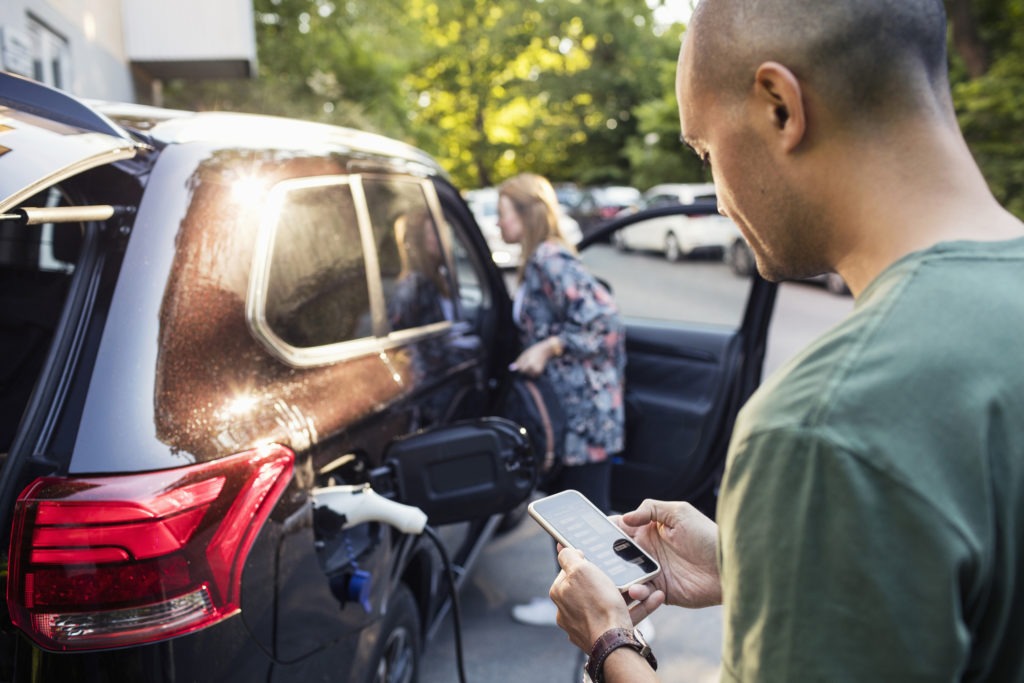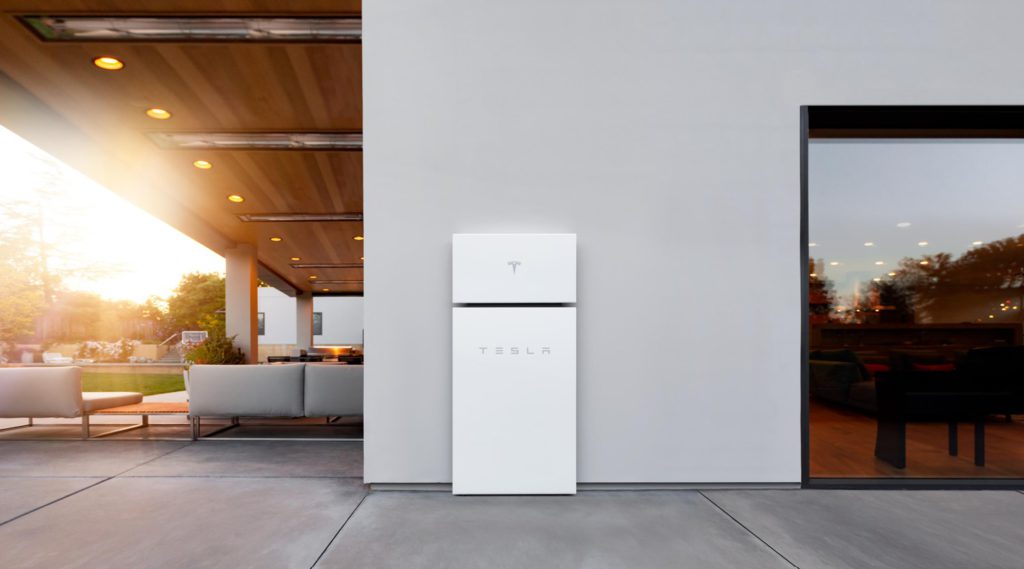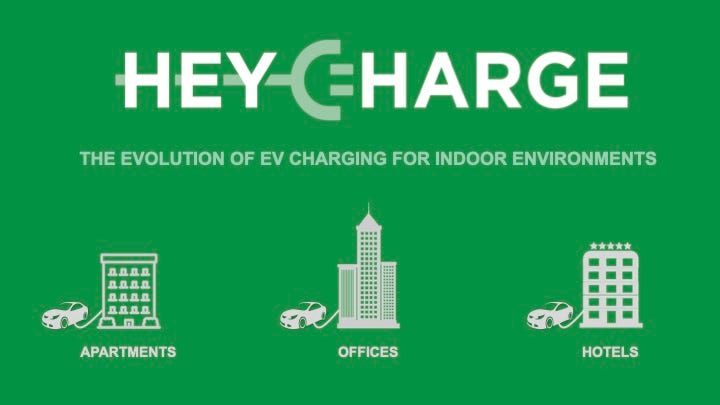Non-automotive companies move into the car sector with new technologies
27 January 2022

The automotive industry is undergoing a period of rapid transformation. Connectivity, digitalisation, and electrification are opening doors to tech giants and other non-automotive players, seeking to revolutionise the industry. Autovista24 journalist Rebeka Shaid considers some of the companies competing for entry.
When Asian smartphone-maker Xiaomi announced it would set up a wholly-owned subsidiary to wade into the booming electrically-chargeable vehicle (EV) market, the news did not really come as a surprise. As China’s version of Apple – which is also rumoured to be working on bringing its own car to the market – Xiaomi joins a wide variety of non-automotive companies tapping into the car industry.
From tech giants and oil majors to energy and payment providers – an eclectic mix of businesses are showing increasing interest in the automotive sector. Sony Group just announced plans to launch a company this spring to explore the commercial roll-out of EVs. Meanwhile, BP is betting on infrastructure, eager to become a leading charging-service provider. And Rival Shell recently struck up a partnership with Chinese car brand Nio to operate battery-charging and swapping facilities in Asia and Europe.
Tech giants drive connectivity
There is a long list of non-automotive companies revolutionising the car industry, especially in the name of connectivity. Since many carmakers have struggled to produce their own connected products, big tech companies have had an easy time taking the helm when it comes to steering the digital future of the market.
This is particularly true for smart technology provided by the likes of Apple and Google that major carmakers have integrated into their vehicles. A fear of missing out might have led Amazon to also push into this lucrative market, with the company making its Alexa Custom Assistant available to manufacturers last year. Fiat Chrysler Automobiles, now part of Stellantis, was the first carmaker to implement this service into its vehicles. Tesla rival Lucid soon followed suit, making Alexa its primary voice assistant.
These types of partnerships are shaping the automotive industry, which is faced with a complex environment dictated by digitalisation, electrification, connectivity, autonomous driving, new entrants, and a plethora of novel products and services. It is no wonder then that OEMs are driving collaborative efforts to exploit innovative opportunities for growth and transformation, especially when it comes to connected cars – not least in the field of in-car payments.
The car as a payment device?

To increase connectivity, financial-services provider Visa struck up a partnership with Daimler Mobility, which plans to offer in-car payments from spring 2022 in a unique pilot project. By integrating Visa’s delegated authentication technology, customers will no longer have to enter passwords or rely on their mobile phones for payment authentication. The collaboration allows Mercedes-Benz customers in the UK and Germany to make payments using a fingerprint sensor in the car. Purchases can then be made directly through the vehicle’s infotainment system.
Jürgen Schübel, Visa’s head of merchant solutions and acceptance, central Europe, told Autovista24 that both the automotive sector and payment transactions are becoming more digital, with the partnership allowing Daimler Mobility and Visa to offer the next generation of networked trade in the car. This not only brings more comfort to drivers and passengers but serves as a strong example of how a leading provider of digital payments and an iconic car brand can combine their technologies into intelligent solutions for the mobility sector. The partnership is the first of its kind and creates ample opportunities for in-vehicle e-commerce.
‘We envision a future where consumers can buy all auto-related goods and services through their vehicle. People expect more convenient and seamless payment experiences – not just from their cards and mobile devices, but also through other channels such as their vehicles. Today, when purchasing car services, motorists must register on a website or physically go to a store,’ said Schübel.
‘The goal of Daimler Mobility and Visa is to enable drivers to purchase exactly the same goods and services through their cars, while at the same time expanding their choice and improving the user experience. The solution will initially be introduced for parking and refueling as well as for paying for the goods and services available in the Mercedes Me Store that can be purchased via the vehicle’s head unit,’ he added.
Schübel pointed out that the partnership could set a benchmark, with more carmakers adopting this business model in the future. The novel service will be rolled out in 19 other European countries, including Italy, France, and Portugal. Visa also confirmed plans to Autovista24 to launch it in markets outside Europe, though no time frame has been set for this yet.
The partnership is beneficial for both companies. Mercedes-Benz emphasised to Autovista24 that its Mercedes Pay service is an essential part of Daimler’s mobility and digitalisation strategy. ‘Global mobility trends for electric vehicles, car-sharing, autonomous driving and connected cars are increasing the demand for innovative ways of paying for goods and services in the vehicle itself,’ the German carmaker said.
COVID-19 has accelerated the pace of digital transformation, not least in the payments and automotive sectors. Research by Capgemini Invent found that the number of connected cars on the road is set to rise to 352 million by 2023, compared with 119.4 million in 2018. This also means in-car payments are going to take a more central role, with Juniper Research expecting this service to reach a value of around $86 billion (€76 billion) by 2025. Including these types of applications from third-party providers allows manufacturers to position themselves against their tech and digital counterparts, also giving them a certain level of control.
Connecting cars and homes
However, non-automotive companies are not only striving to connect cars but also homes. Power infrastructure has become a key battleground in the era of electrification. Last year, Volkswagen (VW) Group teamed up with ev.energy to launch its first intelligent household-electricity tariff in Germany, Europe’s largest energy market. Meanwhile, Hyundai announced an ‘integrated clean-energy ecosystem’ called Hyundai Home that offers customers access to solar energy and EV charging from their own homes.
Then there is Tesla. Eager to stir up the energy market, the carmaker partnered with the German unit of British retail electricity startup Octopus Energy to launch an electricity tariff in the country. Both companies have experienced rapid growth, with Octopus Energy achieving a double ‘unicorn status’ as the startup was valued at more than $2 billion a little over a year ago.

The energy crunch in Europe has led to power prices hitting records in recent months. In Germany, electricity prices are ranked among the highest globally. As a fast-growing energy supplier, Octopus Energy is eager to provide affordable energy tariffs, promising flexibility and a two-year price guarantee. Typical customers will only pay direct energy and network costs on top of a monthly €3 fee. The partnership with Tesla allows Octopus to supply sustainable power to households with rooftop solar panels and a Tesla-branded Powerwall storage battery.
‘Tesla is considered a pioneer when it comes to future-proof innovations,’ Andrew Mack, CEO of Octopus Energy Germany, told Autovista24. ‘We are firmly convinced that the pairing of our expertise will help stir up the energy market. We believe that there are many opportunities for energy providers to advance innovative approaches in the future. Thanks to electromobility, cooperation with car manufacturers is the most obvious, and there are sure to be more exciting developments in the market.’
Mack added that the overriding goal is to work with Tesla to offer a tariff that is affordable and ‘good for the environment’ in the long term. He also said the company is working on further possibilities to create more value for customers with their Powerwall and solar systems. The rise of electromobility has helped energy companies forge partnerships with both traditional manufacturers and newer entrants like Tesla. After all, it is not only carmakers that are adapting to the transformation brought on by electrification, but also energy suppliers. Could partnerships between OEMs and utilities soon become the norm?
‘We believe that there are many opportunities for energy providers in the future to advance innovative approaches. Due to electromobility, the cooperation with car manufacturers is the most obvious and there will certainly be more exciting developments in the market,’ said Mack. ‘However, we see a high potential for innovation not only in cooperation with car manufacturers, but also with other companies and industrial sectors. With all these opportunities, one challenge is the complexity of the German electricity market and the strict regulations. Unfortunately, some companies, including established giants, still shy away from that.’
Octopus Energy’s collaboration exemplifies an attitude to take on these kinds of challenges, and having a powerful partner like Tesla on board will help the company forge ahead with its goals. It is this type of approach that many non-automotive companies are applying to shake up the car industry, taking advantage of trends in the realm of electromobility and connectivity. Undoubtedly, we will see more collaborations in this field and announcements by non-automotive businesses eager to revamp the automotive sector.


